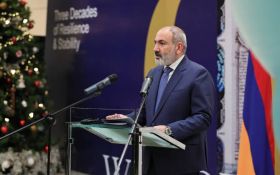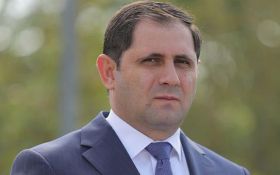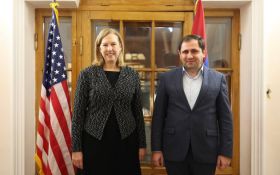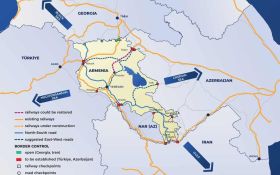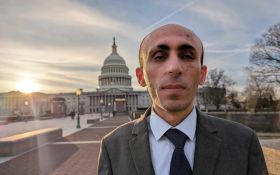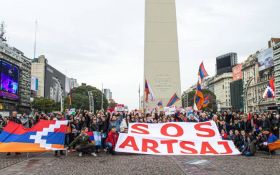The United States Commission on International Religious Freedom (USCIRF) issued on April 29, 2019, its Annual Report listing the “world’s most egregious violators of religious freedom,” among which, not surprisingly, are Azerbaijan and Turkey. Both states are categorized as “Countries of Particular Concern.”
US lists Azerbaijan and Turkey among most egregious violators of religious freedom
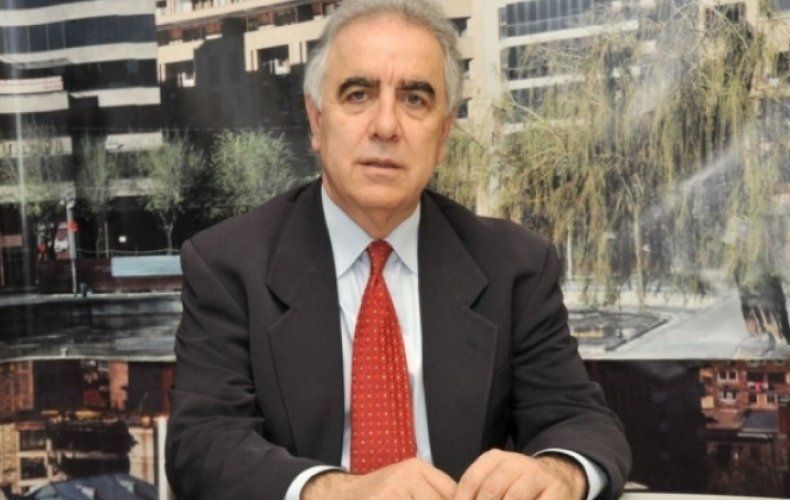
STEPANAKERT, MAY 8, ARTSAKHPRESS: USCIRF, as an independent, bi-partisan commission, advises the President, Congress and the Secretary of State on international religious freedom issues. In its Annual Report, USCIRF describes threats to religious freedom around the world and recommends to the State Department countries for designation as “countries of particular concern” for engaging in or tolerating “systematic, ongoing, egregious violations.”
Azerbaijan’s dictatorial regime controls the activities of religious groups by requiring them to register. USCIRF reported that those “denied registration or refuse to register on theological grounds are considered ‘illegal’ and may face police raids, detainment, arrests, or fines.” Several Christian groups active in Azerbaijan, such as Baptists and Jehovah’s Witnesses “continue to be unable to register.” In some cases, the government delays the process of registration for years due to “technical flaws” in their applications. “For example, Jehovah’s Witnesses have sought registration in the city of Ganja since 2010 and have yet to receive a response on their most recently submitted application from May 2016. Baptists in the village of Aliabad outside of Zaqatala have similarly sought registration since 1994 and been denied. They have reportedly been informed that they cannot even meet to celebrate Christmas together!”
The USCIRF reported: “In 2014, the European Court of Human Rights noted that the law gives officials ‘unlimited discretionary power’ to define and prosecute ‘illegal’ religious activity.”
Furthermore, “in 2018, Azerbaijan underwent its Universal Periodic Review at the United Nations. Several countries expressed concerns about religious freedom conditions in Azerbaijan -- such as mandatory registration requirements; restrictions on nontraditional religious communities and the ability, generally, of religious groups to practice in private and in public; and individuals imprisoned and tortured for their beliefs. In addition, civil society organizations submitted similar information and recommendations about religious freedom concerns in Azerbaijan,” according to the USCIRF Report.
Surprisingly, even the possession of the Holy Qur’an could be illegal in Azerbaijan. “In February 2018, MUM [Muslim Unity Movement] leader and Shi’a Muslim theologian Taleh Bagirov (also known by the surname Bagirzade) received an additional five-month sentence for allegedly possessing micro-discs containing the text and audio recordings of the Qur’an,” as USCIRF reported.
Another major religious violation is the closure of places of worship. “In 2018, mosques that the government purportedly had closed for repairs remained shut down years after their closure and with no official timeline for the completion of the renovations or the mosques’ reopening. Critics of the closures believe it is part of a government effort to target Muslims who are considered ‘radical.’ The Ashur Mosque, also known as the Lezgi Mosque, located in the Old City of Baku, was closed in July 2016 despite protests from the local Muslim community, which expressed concern that the repairs were an excuse and part of an attempt by the government to disperse the community. At the end of the reporting period, the mosque remained closed. During the year, numerous other “nontraditional” home mosques throughout Baku and other regions, including one that was apparently connected to the Naqshbandi Sufi community, continued to face raids and closure…. In April 2018, the new building of the Haji Javad Mosque in the Yasamal District of Baku was completed. The original mosque had been destroyed amid protests in July 2017,” the USCIRF reported.
The Report also covered raids on homes and centers where religious services were being held without the group being registered by the government. The Report cites the harassment of the members of the East Pentecostal Church and Jehovah’s Witnesses. In addition, several members of Jehovah’s Witnesses were prosecuted for their objection to serve in the military, despite a provision in the Azerbaijan’s constitution that allows alternate service for conscientious objectors.
Finally, the Aliyev government has confiscated all religious materials that had not received approval prior to being produced or imported into Azerbaijan. “The sale and distribution of religious literature can only be carried out at preapproved stores or sites,” according to the USCIRF.
Next week, we will cover the violations of religious freedoms in Turkey.
By Harut Sassounian
Publisher, The California Courier




